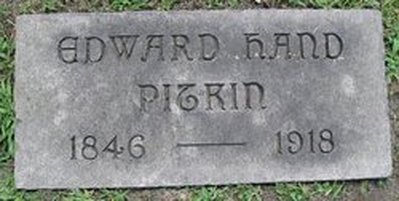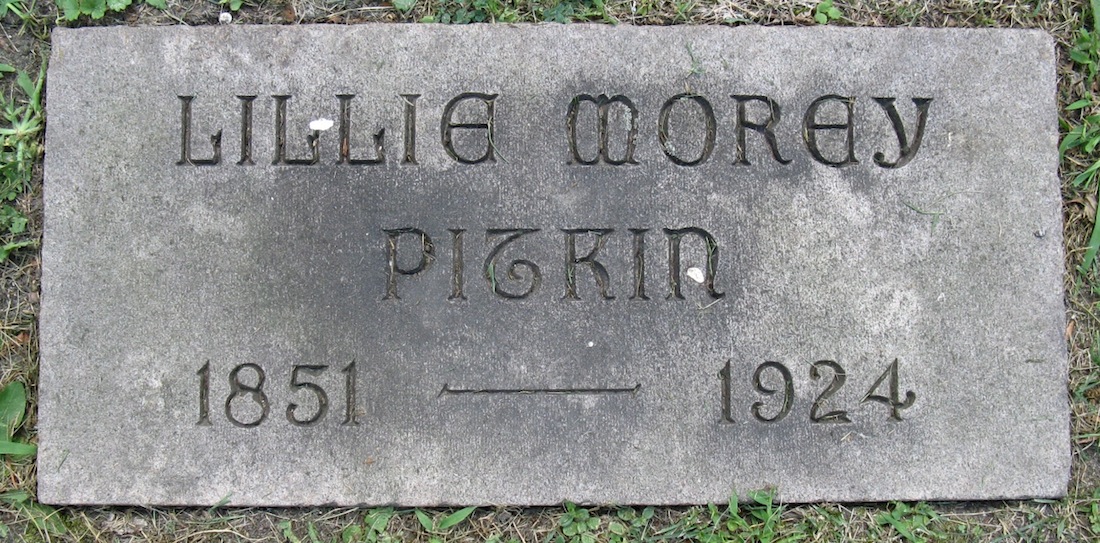Edward Hand and Lillie Morey Pitkin
Eward (1846-1918), Lillie (1851-1924)
|
|
Edward H. Pitkin came from a prominent family
with governors and state supreme court justices on both sides of his family
tree. His father joined the thousands who followed the gold strikes to
California in the 1840s and 1850s, and E. H. spent most of his youth living
with relatives in Vermont. The family moved to Chicago when his father finally
returned, unsuccessful in his search for riches. Since there were not enough
funds for E.H. to attend high school, he worked in a crockery factory until he
enlisted in the 132nd Illinois Volunteers during the Civil War. Underage when
he enlisted, he always considered himself lucky that he never saw action.
He married Lillie E. Morey and they settled in Oak Park in 1871. He became a founding trustee of the Scoville Institute, Oak Parks first public library. Soon after the Chicago Fire, he established a retail and manufacturing firm, Pitkin and Brooks, which sold pottery, lamps and glassware, and manufactured diamond cut glass. The store, located at the corner of State and Lake Streets in Chicago, also offered "the most desirable goods in the largest variety, with guarantee of satisfaction and courteous treatment," according to a 1906 advertisement. When Dr. Edward Dwight Eaton, Pitkins minister at the First Congregational Church in Oak Park, was appointed president of Beloit College, he asked for Pitkins assistance in fund raising. This connection with Beloit College became a dominant feature in his life; as chairman of the Ways and Means committee, Pitkin increased the college's endowment tenfold, and he remained a college trustee for thirty-two years. The Pitkins' daughter, Miss L. May Pitkin, taught English and served as Dean of Women at Beloit. In 1893, Lillie Pitkin became the first elected woman official in Oak Park. Illinois women had been given the right to vote in local school board elections in 1891. Mrs. Pitkin, a member of The Nineteenth Century Woman's Club, was nominated and elected to serve a six-year term on the Oak Park High School Board. In an ironic twist years later, the Pitkin home was torn down to make way for the high schools athletic field. Information from Nature's Choicest Spot |



